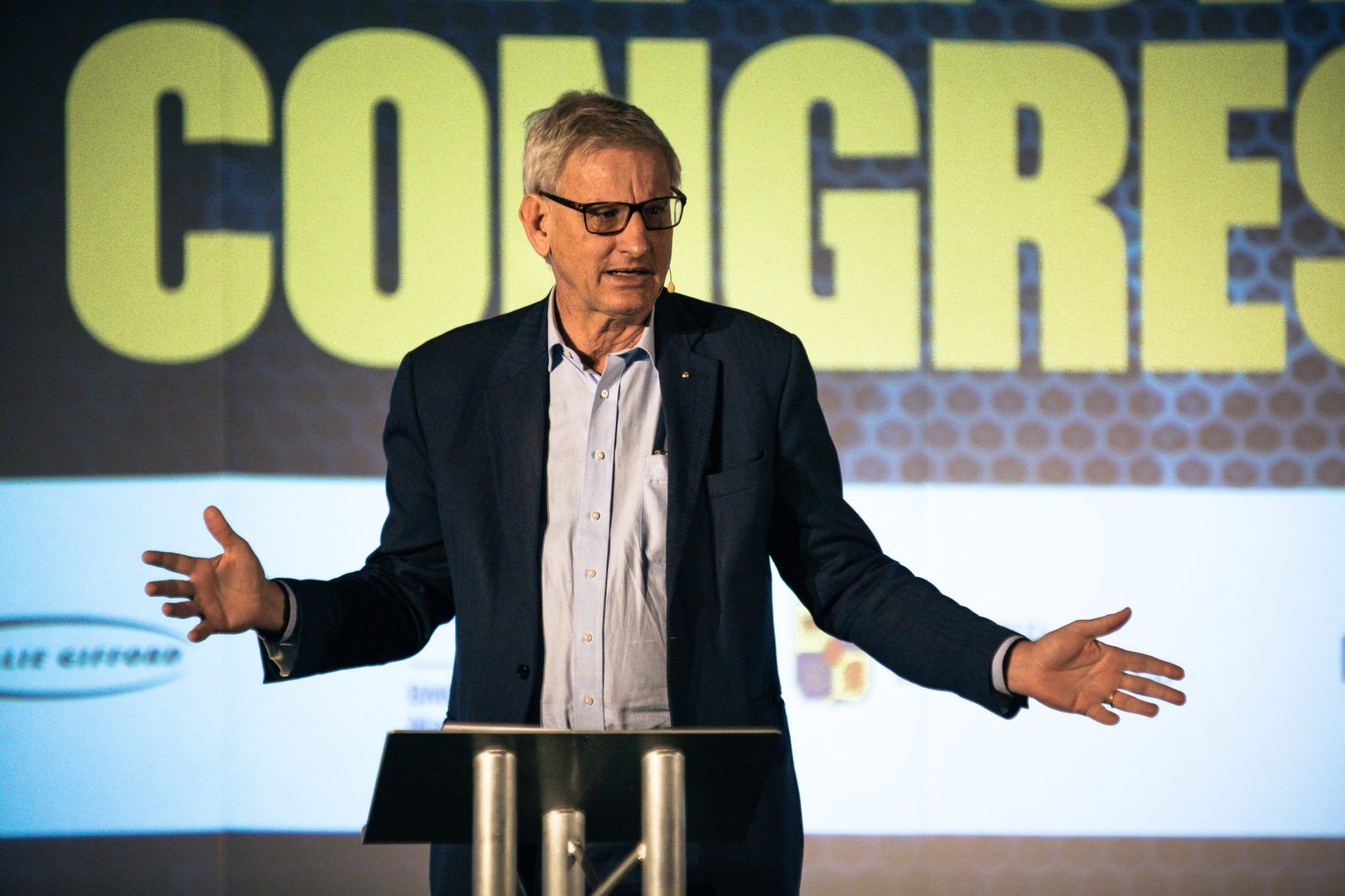The future of the European Union depends on how it adapts to a new great power era as China, Russia and the United States tussle for global supremacy, according to former Swedish prime minister Carl Bildt.
“The European Union is in a state of transition at a time when the global situation is much more complicated than it used to be,” Bildt said in the keynote speech at the Expert Investor Pan-European Congress in Barcelona last week.
As prime minister, Bildt negotiated Sweden’s accession to the EU in the 1990s and also served foreign minister as well as the EU’s special envoy to the former Yugoslavia.
“We have entered an era of what the Americans would call ‘great power competition’ in the world,” Bildt said. “You can see a build-up of geopolitical tensions between a revisionist Russia, an assertive China and a disruptive United States.”
“The question for the EU in this new era of intensifying great power competition is: are we a great power and if not, then are we going to be a player or the playground?”
It’s this dilemma, Bildt said, that should underpin the direction the EU takes in the years ahead and the policies it needs to adopt.
Treaties and Institutions
At its heart, the EU is made up of treaties, institutions and personalities, Bildt said.
Extensive legal treaties – such as the Treaty of Rome, the Maastricht Treaty and the Lisbon treaty – lay out a large body of constitutional law that regulates the interaction between member states and dictate its internal workings.
On top of that body of law, sits a collection of institutions led by the European Commission, the European Council and the 750-representative European Parliament.
The processes by which these institutions make decisions can be quite convoluted, Bildt, who has attended 150 meetings of the European Council over the years, admitted.
“The European Commission presents a proposal to the European Council of the member states and they have to agree or disagree and amend it one way or the other and then it goes to the European Parliament and they do the same,” Bildt said.
“If parliament does not reach the same conclusion as the commission and the council it goes to negotiation – and then the personalities and relationships of the key politicians at an intuitional and national level becomes very important.”
The European Union – 28 nations and 500 million people that make up the world’s second largest economy – is by necessity a “fairly complicated bird”, Bildt said.
EU at a crossroads
This year, the bloc stands at a crossroads. European elections in May will elect new representatives and new commissioners as well as a new council president are due to appointed and they will have to negotiate the thorny issue of new EU budgets.
“These changes will have a substantial impact on EU budget allocations and on decisions and policies going forward,” Bildt said.
“The world is changing. The personalities in the EU are changing. The EU budget is changing… on top of that we have Brexit.”
The UK’s departure from the bloc remains clouded in uncertainty after the British parliament rejected the government’s Brexit deal last week.
“Will Brexit happen? I think it likely will,” Bildt said. “When will it happen? Haven’t a clue. How will it happen? No one seems to know.”
Bildt said he expected the post-Brexit direction of the EU to be more-or-less organised by the end of the year.
Prime Minister Theresa May is expected to seek an extension of Britain’s membership of the EU beyond the scheduled departure date of March 29 if she fails to pass her deal.
If and when Britain eventually leaves, the EU needs to adjust to being an EU 27, Bildt said, and working out how to make that work.
“The UK has been a powerful player inside the European Union. In the individual councils, such as foreign affairs, Britain has played an oversized role because of its institutions, such as the British civil service, and the information flow it has,” he said.
“The EU needs to work out how it will continue to be effective on the global stage, without Britain with regard to foreign trade, competition law and internal market issues.”
From dreams to necessity
The European Union was forged in the 1950s, when the Treaty of Rome brought about the creation of the European Economic Community, in a bid to reconstruct the economies of the European continent after World War Two and ensure a lasting peace.
“Back in the 1950s, it was a Europe of dreams. The dream was to create peace through integration and that vision drove the European project for a long time,” Bildt said.
“The problem is that the Europe of visions and dreams doesn’t carry weight anymore – what has replaced it is the Europe of necessity.”
“If you are prime minister of a small European country – and all European countries are small on the world state today – your inbox is filled with one problem after another.
“And at least a third of those problems require you to go to Brussels and work with EU colleagues to seek a solution because there is no national solution available,” he said.
“There’s a reason why EU institutions hold hundreds of meetings every year and prime ministers and presidents visit Brussels all the time. It’s a necessity.
“It’s a necessity because member states are too small to deal with many global problems – such as trade tensions, foreign policy challenges, migration flows and big digital issues – by themselves.
The Europe of the visions and dreams has faded, it does not have the traction that it used to have,” Bildt said.
“But in the face of these new global challenges, the Europe of necessity has only grown in importance.”







